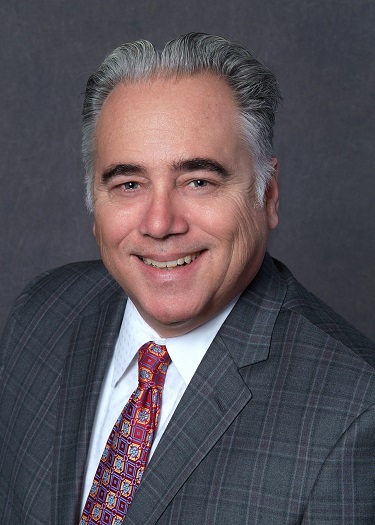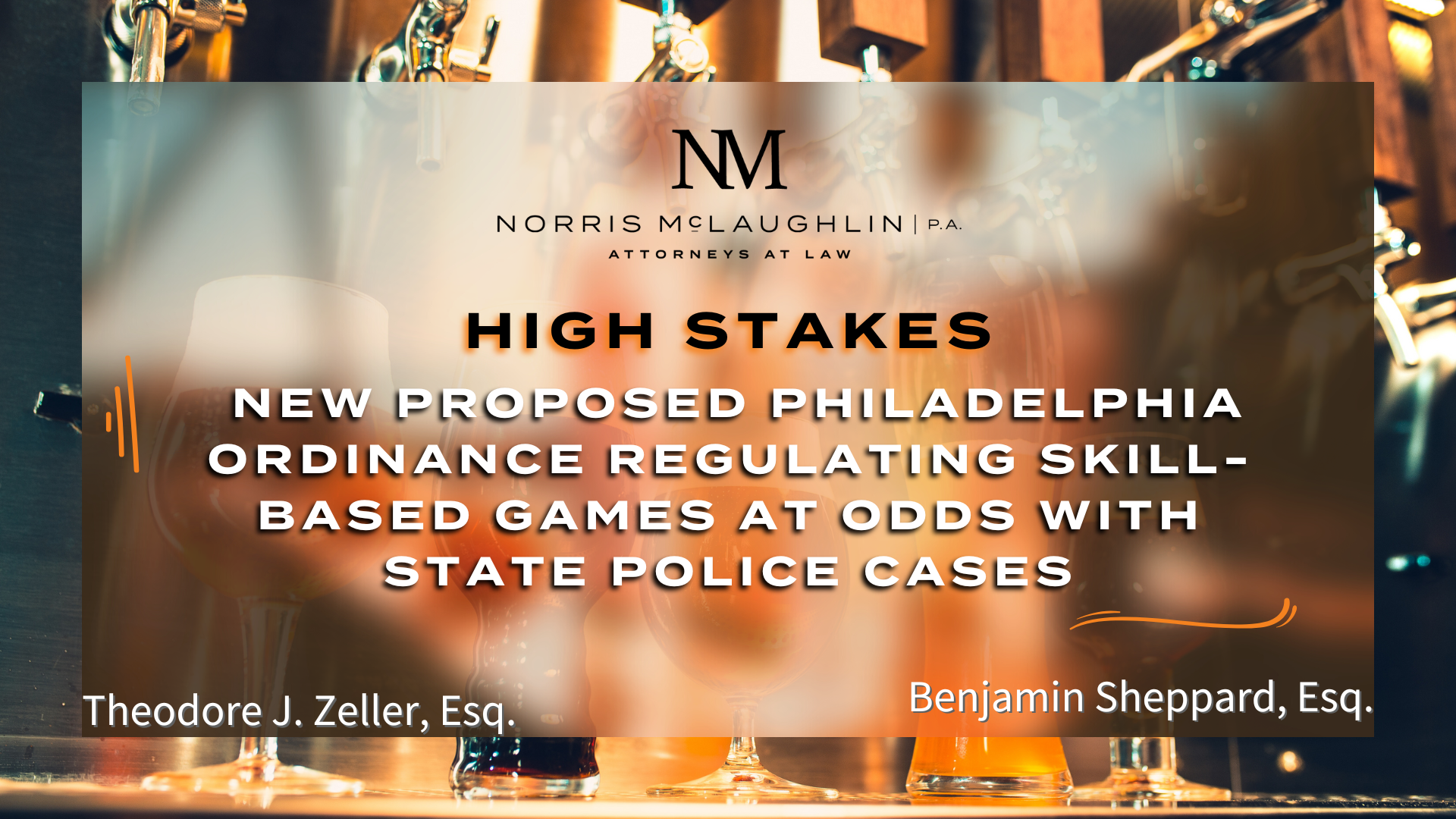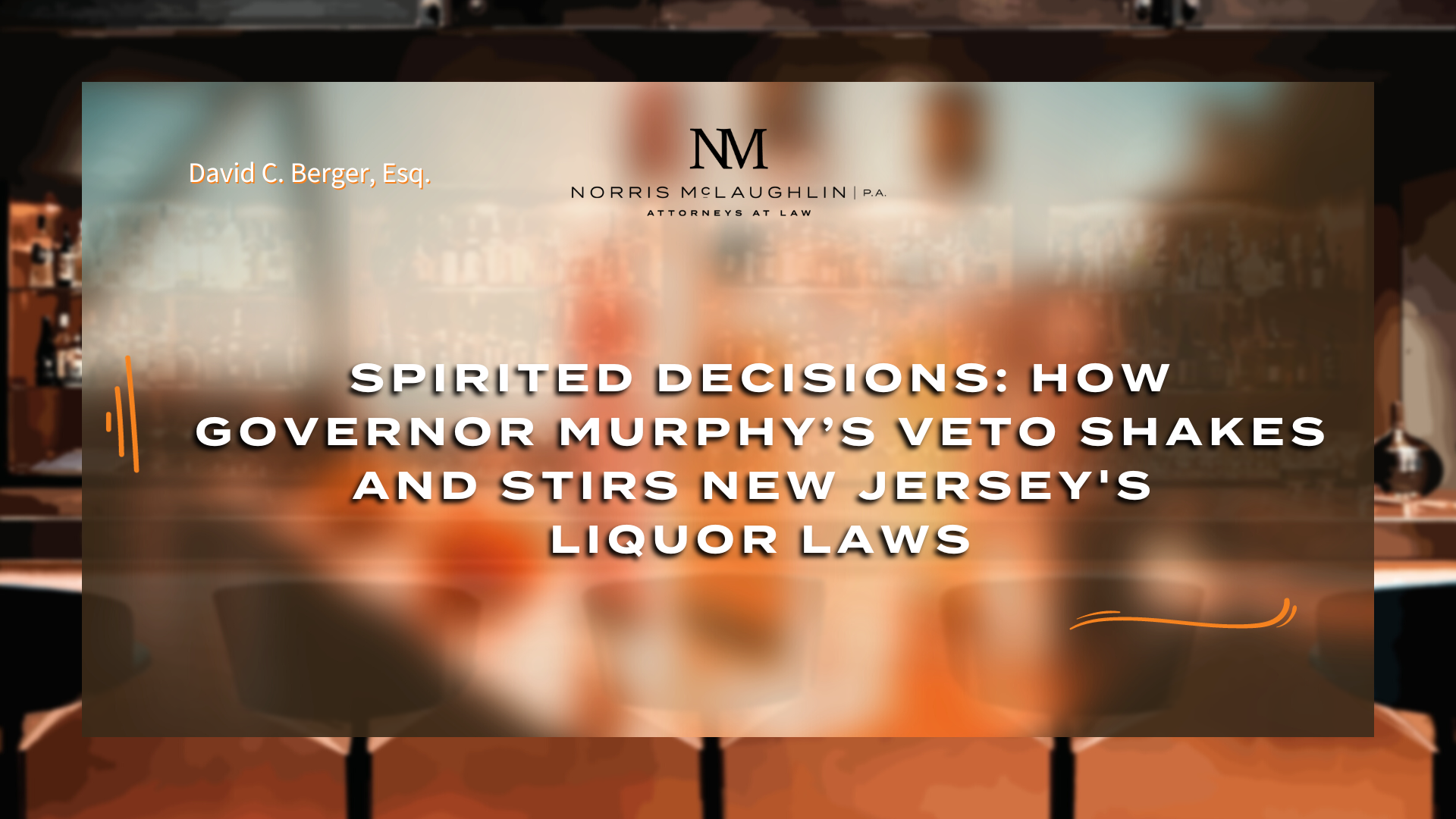House and Senate Pass HB-1196 – More Than Just a Fix-It Bill to Act 39

Late last night, the House and Senate passed 1196, touted as a fix-it bill to Act 39, which was the largest single piece of Liquor Code reform since Prohibition. As I have detailed in many releases, Act 39 provided many new opportunities for various stakeholders, and also created a lot of questions. Some of those questions are answered in 1196; however, the most significant provisions of 1196 go beyond fixing some of the deficiencies of Act 39.
The biggest change that Act 39, if signed by the Governor, provides is the ability of distributors to break the bulk of a case and sell down to a single bottle and even fill growlers of any size. This is a major victory for distributors and beer in general. Distributors are still the number one source of retail beer sales in the Commonwealth and now can compete on a level playing field with grocery stores and other bottle shops. No doubt this will lessen consumer confusion and, unlike Act 39, will actually promote consumer convenience on the pricing side. Generally, distributors have better pricing for brewery products than grocery store mark-ups for six packs.
Fortunately for brewers in the State, mug club provisions created by Act 39 were fixed so now breweries can offer mug club members a discount simply by joining a mug club. They have eradicated the provision that the discounted beer must be served in the actual mug given to a mug club member, which created all sorts of logistical and sanitary issues.
Another big item is that now breweries that do not have brew pub licenses can serve licensed distillery, distillery, and limited winery products. There is a restriction that brewery’s on-premise sales of its own beer must be at least 50% of the sales; however, this clears up confusion associated with Act 39. Breweries can also sell beer products of other breweries licensed by the Board. This should help pave the way for many collaboration efforts which were complicated under old laws. I also predict that the Pennsylvania Liquor Control Board would interpret these new provisions as also applying to the storage facility location, because the storage facility locations are also licensed brewery premises. As another side note, H.B. 1196 changed the language of Act 39 by stating breweries can sell other manufacturer's products but only those manufacturers “licensed by the Board.” While this presents an interesting commerce clause issue subject to constitutional challenge, it appears the Legislators have negated any interpretation of allowing out-of-state manufacturers’ products to be sold under the new provisions.
Another item is that Pennsylvania is now becoming a reporting state. What this means is that all wholesalers and manufacturers, when selling at retail or self-distributing, must report these volumes to the Pennsylvania Liquor Control Board. Those forms, which have not yet been developed by the Pennsylvania Liquor Control Board, will require manufacturers to report volumes in 31-gallon equivalents, regardless of the package size. As a result, if you are a brewery, you will not need to report volume sold to Pennsylvania wholesalers that distribute your product, but you will have to report all volumes sold at your brewery premises and self-distributed to retail in the market.
A last-second change significantly modified the new “beer of the month club” created under Act 1196. The change, by Representative Paul Costa, took away the Pennsylvania manufacturer’s privilege to supply a beer of the month club directly to consumers, and now only out-of-state wholesalers and retailers can offer a beer of the month club to Pennsylvania residents, in limited amounts of only 96 ounces per year per beer brand.
There was an interesting development for wholesalers and their ability to strengthen franchise laws. Under Pennsylvania law, distributors could sell to any retail accounts without regard to the territorial restrictions contained in the wholesaler and brewer distributor agreements. A distributor could disregard the fact that a beer brand being sold to a retailer in a territory was actually controlled by a different wholesaler from which the distributor purchased its beer. Under 1196, distributors will be able to sell only in territories that comply with a wholesaler’s territory. This will be significant in the Pittsburgh area, which is known for extra-territorial sales by distributors.
There is also an obscure provision buried in the limited wine enabling act. While I cannot yet predict how this will be interpreted, limited wineries that can produce wine, alcoholic ciders, wine coolers, and now mead, can sell directly to importing distributors and distributors. It would seem implied that importing distributors and distributors could now resell those products to consumers and, potentially, even retail accounts, thereby voiding the whole State Store system. I am sure this will be the topic of hot debate in the near future.
There are also some minor changes with the most relevant that alcoholic ciders' carbonation was adjusted to 6.4 grams per liter, which makes sense now that Act 39 permits alcoholic ciders to jump to 8.5% alcohol by volume. There are minor changes to wine auctions to allow spirits to also be auctioned by qualifying charities. The interlocking business rules are softened so an R licensee can now own or lease to a distillery and some other smaller changes. Mead is a big winner in this bill, as it now can be sold like limited wine and, potentially, can be sold by importing distributors and distributors. There is also a minor fix which will further assist grocery stores, in that grocery stores no longer need to have separate entries into licensed premises as long as the remainder of the grocery store operates during Board approved hours.
In sum, certainly 2016 will go down as a major reform year for the Liquor Code. As we have seen from Act 39, there will be additional questions created by HB1196, especially with regard to a limited winery’s ability to sell to importing distributors and distributors. Everyone expects the Governor to sign this Bill into law in short order, and the law will be effective 60 days after the Governor’s signature.
For additional information regarding this matter or for addressing any other liquor law matters, please contact Theodore J. Zeller III, Esquire, at tzeller@nmmlaw.com or at our offices at 610-391-1800.




